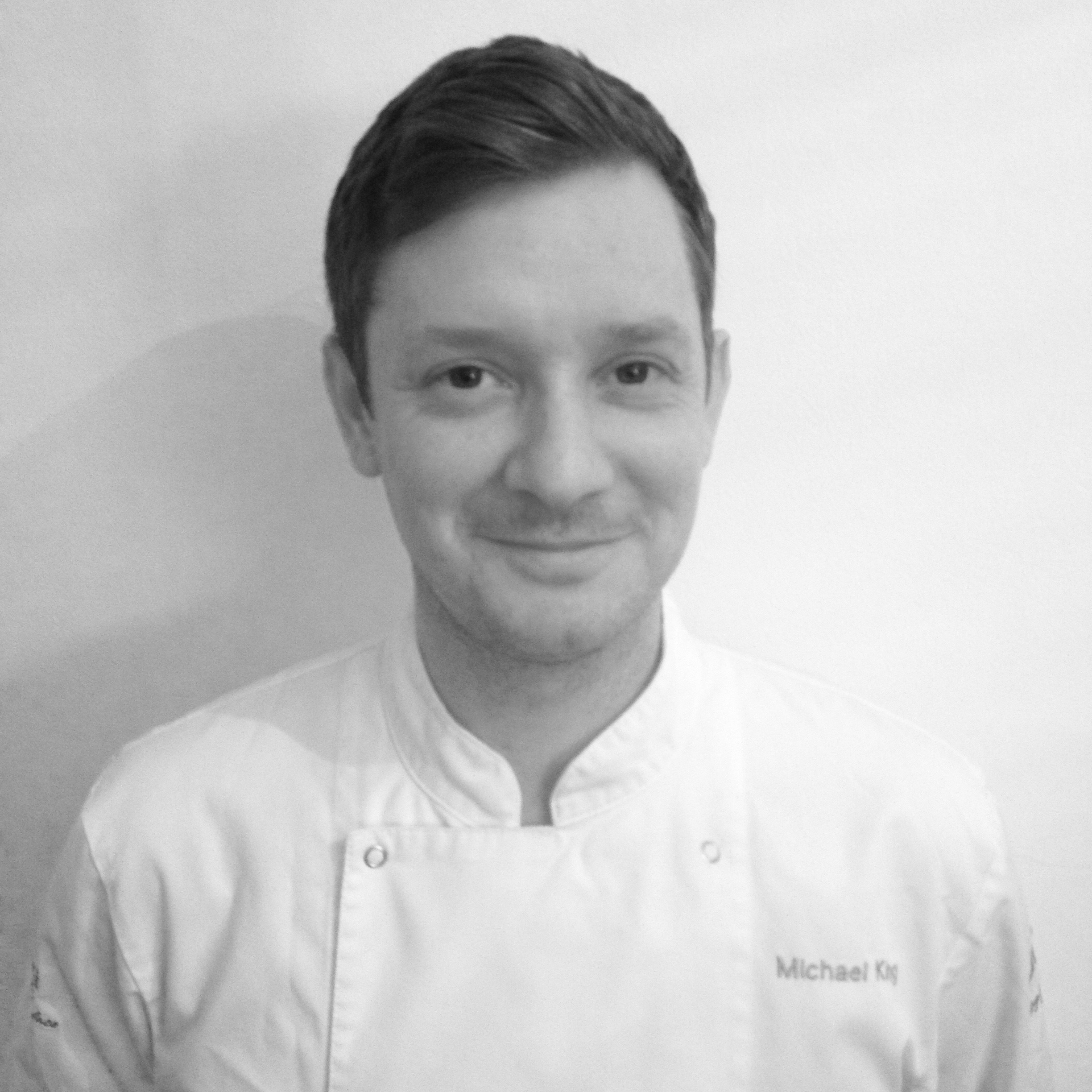Do you love eating seafood, but aren’t sure if what you’re eating is sustainable…
The Marine Conservation Society asked Mike King, one of Compass Group UK & Ireland’s expert culinary team, for his top tips on how to choose the best seafood. Mike is a fish and sustainability champion for the leading foodservice company and features in the latest Good Fish Guide video. Mike shares his passion for cooking seafood and his delicious sustainable Hake, sorrel sauce and summer vegetables recipe.
What is your connection with seafood?
I have been a professional chef for 18 years and a keen fisherman for about 25. My ideal day would be spent digging my own bait, fishing and then returning to the kitchen with my catch to turn it into a really special meal, knowing I have only taken what I need.
I live in Brighton, about 50 yards from the sea and when I am not in the kitchen or fishing at the marina you will find me on my kayak or enjoying a glass of wine on the beach with my fiancé.
What do you love about the ocean?
As a keen fisherman and professional chef, I have had a connection with the ocean since I was a boy. My love of fishing in Scotland as a kid, soon merged with my love of cooking and now I pride myself on being able to get the best out of the ingredients I either catch or source responsibly.
Even in my (relatively short) lifetime I have witnessed changes in the species I used to catch, and the ease in which I used to catch them. I have travelled the world with my knife and fishing rod and am yet to visit anywhere where the locals talk about an abundance of seafood and do not refer to “the good old days”. I really believe it’s important to keep our oceans as they should be and fishing sustainably is part of that.
Why is sustainable seafood important to you?
Sustainability is important to me because the sea is a finite resource, it is not as easy to gauge stock levels as it is to count cows in a field, or crops in the dirt. The oceans must be looked after, not just for the benefit of all the creatures that rely on them to live, but also to guarantee future generations get to enjoy all they have to offer… from the taste of a freshly shucked Oysters, or freshly caught Mackerel, to enjoying a clean beach and swim. If we do not take responsibility for our actions we will end up with a plastic sea with little life, and no one wants that.
As a chef, what are the challenges or barriers in sourcing sustainable seafood?
The biggest challenge is knowledge and skillset. As a nation we have become disconnected from what we eat and there are a huge range of UK seasonal species that largely get ignored. Historically we think of the big five- Tuna, Salmon, Cod, Haddock and Prawns. The MCS Good Fish Guide helps identify sustainable species and is a great tool for chefs and consumers to use when sourcing and eating seafood.
It’s important that everyone is able to get their hands on lesser used species like Dab, Gurnard and other fish to familiarise themselves with the preparation needed to turn them into something beautiful. People can be intimidated by species they are not familiar with. It is a complicated business, as it’s not as easy as earmarking all Cod as sustainable, it depends on the individual fishery and catching methods, it all boils down to education and communication, at all levels. Something that MCS is helping to make people more aware of.
What tips would you give to chefs and consumers in choosing sustainable seafood?
Always ask your supplier for seasonal, sustainable choices, and don’t be afraid to ask for guidance in preparation, or for them to help in supplying fish prepared for you. Set your boundaries and do not deviate from them. Do not buy anything on the fish to avoid list and try your hardest to use fish rated 1-3 on the MCS Good Fish Guide. Look for certification like Marine Stewardship Council for wild caught fish and Aqua Stewardship Council for farmed fish. Don’t assume something is sustainable because there is a quota for it. Buy British, seasonal and sustainable and shout about it!
As a consumer, always ask where your fish is sourced from, and don’t be afraid to decline the choice should – for example- the Scallops be dredged rather than hand dived. Yes you will pay a little more for them, but you are investing in a sustainable ocean for all to enjoy in the years to come.
Read Mike King’s scrumptious sustainable Hake, sorrel sauce & summer vegetables recipe here


